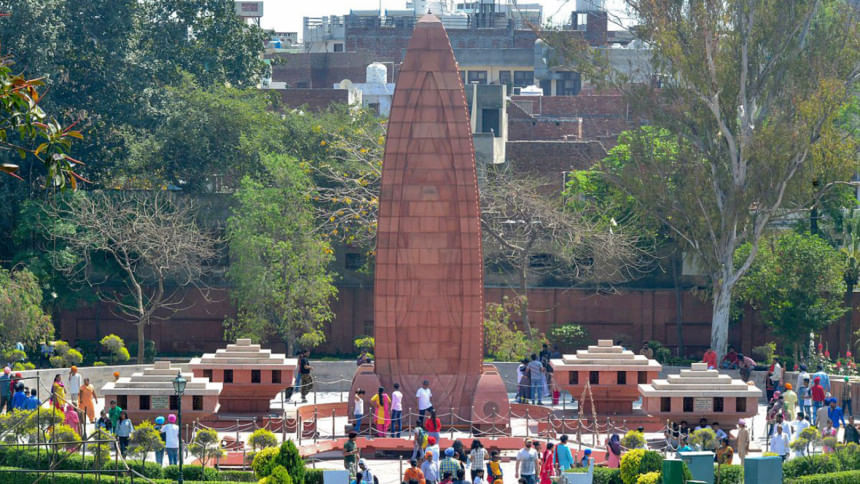100 years of Jallianwala Bagh Massacre: Indians pay tributes to martyrs

Earlier this week, British Prime Minister Theresa May had said that 'the tragedy of Jallianwala Bagh of 1919 is a shameful scar on British Indian history.'
Today, April 13, 2019 marks 100 years of the Jallianwala Bagh Massacre, the bloodiest day in Indian history when British forces led by Brigadier General Reginald Dyer opened fire on hundreds of unarmed, innocent Indians, including women and children, who were protesting peacefully against the oppressive Rowlatt Act of the British government.
At least 400 people were killed after some 50 British soldiers opened fire within the walled enclosure in Jallianwala Bagh. However, Indian figures put the toll at closer to 1,000.
President Ram Nath Kovind and Prime Minister Narendra Modi paid tributes to the martyrs of the massacre.
"A 100 years ago today, our beloved freedom fighters were martyred at Jallianwala Bagh. A horrific massacre, a stain on civilisation, that day of sacrifice can never be forgotten by India," Kovind tweeted.
"India pays tributes to all those martyred on that fateful day. Their valour and sacrifice will never be forgotten. Their memory inspires us to work even harder to build an India they would be proud of," Modi said.
Congress president Rahul Gandhi who arrived in Amristar on Friday, paid his tribute and laid wreath at the Jallianwala Bagh memorial
Punjab CM Captain Amarinder Singh and state minister Navjot Singh Sidhu also present.
Vice President Venkaiah Naidu will pay tribute at the Jallianwala Bagh Memorial and will release a commemorative coin and a postage stamp.
The British High Commissioner to India, Sir Dominic Asquith who visited the Jallianwala Bagh memorial early this morning said, it is one of the worst outrageous incidents.
"Revulsion we felt at the time and is still strong. Regret the suffering caused. You might want to rewrite history but you can't. I have deep affection for India. What you can do is learn lessons from history. We will never forget and the act of commemoration is personal to me and also comes from the British government and its people," he wrote in his message.
Earlier this week, British Prime Minister Theresa May had said that "the tragedy of Jallianwala Bagh of 1919 is a shameful scar on British Indian history."
The British government, even after 100 years, has only regretted the massacre but stopped short of apologising for the killing of so many innocent people.
Rejecting the regret expressed by British Prime Minister Theresa May as "inadequate", Chief Minister Amarinder Singh on Friday demanded "an unequivocal official apology from Britain".
Copyright: The Statesman/ Asia News Network

 For all latest news, follow The Daily Star's Google News channel.
For all latest news, follow The Daily Star's Google News channel. 



Comments